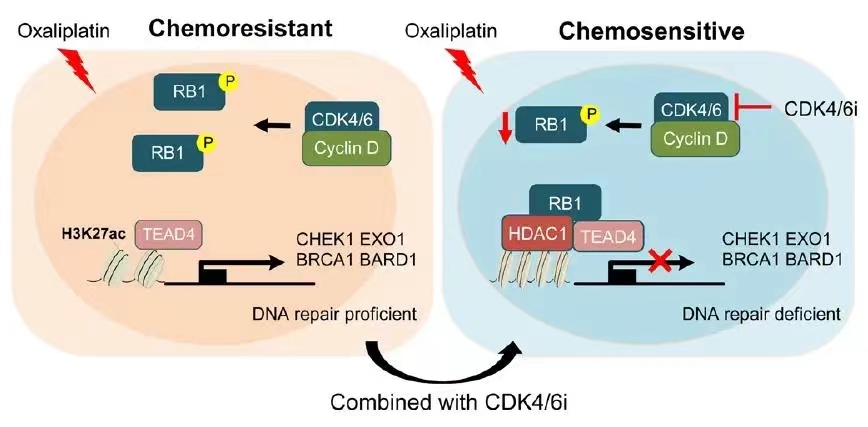A research team from Guangdong province has made a significant breakthrough in understanding and potentially overcoming resistance to a key treatment for locally advanced rectal cancer (LARC). This research, conducted by scientists at the Sixth Affiliated Hospital of Sun Yat-sen University and the Sun Yat-sen University Cancer Center, offers promising avenues for improving treatment outcomes for patients facing this challenging condition.
Their findings, published in the prestigious journal Proceedings of the National Academy of Sciences (PNAS) under the title “Pharmacological modulation of RB1 activity mitigates resistance to neoadjuvant chemotherapy in locally advanced rectal cancer,” highlight the significant contributions of Guangdong researchers to the fight against cancer.

Neoadjuvant chemotherapy is the primary method used to shrink tumors and improve treatment success rates in patients with LARC. However, a significant portion of patients develop resistance to this therapy, leading to poorer prognoses. Recognizing this critical need, the Guangdong research team set out to explore the molecular mechanisms behind this resistance and identify potential targets for novel treatment strategies.
Through a combination of analyzing the molecular characteristics of resistant rectal cancer cells and employing high-throughput drug screening techniques, the researchers discovered that CDK4/6 inhibitors could significantly enhance the effectiveness of the chemotherapy drug oxaliplatin. They further delved into the underlying mechanisms using advanced sequencing techniques like whole transcriptome sequencing and epigenetic profiling.
Their findings revealed that CDK4/6 inhibitors work by reversing oxaliplatin resistance through specific epigenetic modifications that regulate the expression of genes involved in a cellular repair process known as homologous recombination repair.
This groundbreaking research by the Guangdong team paves the way for the development of new treatment approaches for LARC patients who are resistant to neoadjuvant chemotherapy. The identification of CDK4/6 inhibitors as potential therapeutic agents, coupled with the understanding of the associated molecular mechanisms, holds significant promise for improving treatment outcomes and patient prognoses.

